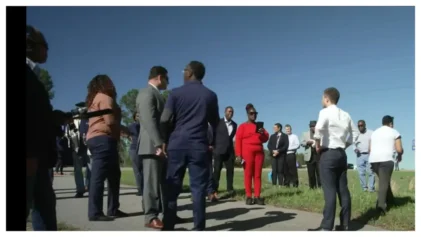Two Northwestern University researchers released the results of three studies that perhaps explain why white Americans are becoming increasingly conservative, particularly after the election of Barack Obama.
The studies by Maureen Craig and Jennifer Richeson show that when white Americans were presented with the U.S. Census Bureau prediction that whites will in the next three decades become a racial minority, they become more conservative.
In the first study, self-identifying political independents were randomly asked to learn about the majority-minority racial shift in California or about how the number of Hispanics in the United States is now roughly equal to the number of African-Americans, and then they were asked questions about their political party leanings and ideology.
The result was that, “[d]espite being self-identified political independents, respondents who were asked about the [majority-minority] racial shift reported being somewhat more conservative than did respondents” who were asked the other question about Hispanics being roughly equally to African-Americans.
Two other studies devised other ways of making whites feel threatened by the changing demographics, then tested their political views.
Craig and Richeson reported “striking evidence that perceived group-status threat, triggered by exposure to the majority-minority shift, increases Whites’ endorsement of conservative political ideology and policy positions.” However, they added that “the addition of a simple paragraph stating that Whites are likely to remain at the top of the future racial hierarchy in a majority-minority America eliminated the conservative shift otherwise observed after exposure to the racial-shift information.”
In a piece on slate.com, writer Jamelle Bouie connected these findings to the history of race relations in the U.S., when the fear of racial uprisings led to an increase in white violence against blacks—particularly in Southern states like Alabama and Mississippi where Blacks outnumbered whites.
“The racial polarization of the 2012 election—where the large majority of whites voted for Republicans, while the overwhelming majority of minorities voted for Democrats—could continue for decades,” Bouie writes. “That would be great for Democratic partisans excited at the prospect of winning national elections in perpetuity, but terrible for our democracy, which is still adjusting to our new multiracial reality, where minority groups are equal partners in political life. To accomplish anything—to the meet the challenges of our present and future—we’ll need a measure of civic solidarity, a common belief that we’re all Americans, with legitimate claims on the bounty of the country.”


